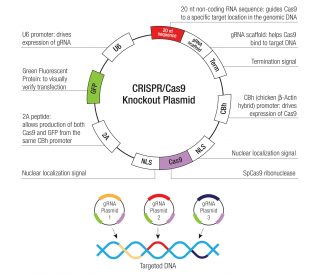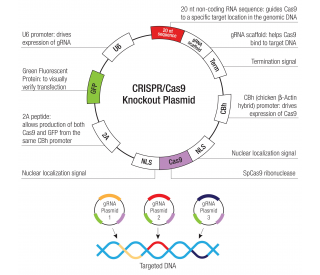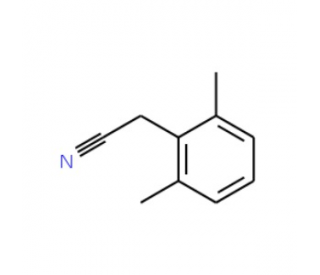详细说明
Species Reactivity
Human, Mouse, Rat
Specificity
Detects human, mouse and rat p70 S6 Kinase when phosphorylated at T421 and S424 and p85 S6K when phosphorylated at T444 and S447.
Source
Polyclonal Rabbit IgG
Purification
Antigen and protein A Affinity-purified
Immunogen
Phosphopeptide containing human, rat, and mouse p70 S6 Kinase T421/S424 sites
Formulation
Lyophilized from a 0.2 μm filtered solution in PBS with Trehalose. *Small pack size (SP) is supplied as a 0.2 µm filtered solution in PBS.
Label
Unconjugated
Applications
Recommended
ConcentrationSample
Western Blot
0.25 µg/mL
See below
Simple Western
5 µg/mL
See below
Please Note: Optimal dilutions should be determined by each laboratory for each application. are available in the Technical Information section on our website.
Data Examples
Western Blot | Detection of Human and Mouse Phospho-p70 S6 Kinase (T421/S424) by Western Blot. Western blot shows lysates of MCF‑7 human breast cancer cell line untreated (-) or treated (+) with 100 ng/mL of Recombinant Human IGF‑1 (Catalog #) for 20 minutes and NIH‑3T3 mouse embryonic fibroblast cell line untreated or treated with 100 ng/mL of Human PDGF (Catalog #) for 20 minutes. PVDF membrane was probed with 0.25 µg/mL of Rabbit Anti-Human/Mouse/Rat Phospho-p70 S6 Kinase (T421/S424) Antigen Affinity-purified Polyclonal Antibody (Catalog # AF8965), followed by HRP-conjugated Anti-Rabbit IgG Secondary Antibody (Catalog # ). Specific bands were detected for Phospho-p70 S6 Kinase (T421/S424) at approximately 70 and 85 kDa (as indicated). This experiment was conducted under reducing conditions and using . |
Simple Western | Detection of Human Phospho-p70 S6 Kinase (T421/S424) by Simple WesternTM. Simple Western lane view shows lysates of MCF‑7 human breast cancer cell line untreated (-) or treated (+) with 100 ng/mL Recombinant Human IGF‑I (Catalog # ) for 20 minutes, loaded at 0.2 mg/mL. A specific band was detected for Phospho-p70 S6 Kinase (T421/S424) at approximately 66 kDa (as indicated) using 5 µg/mL of Rabbit Anti-Human/Mouse/Rat Phospho-p70 S6 Kinase (T421/S424) Antigen Affinity-purified Polyclonal Antibody (Catalog # AF8965). This experiment was conducted under reducing conditions and using the 12-230 kDa separation system. |
Preparation and Storage
Reconstitution
Reconstitute at 0.2 mg/mL in sterile PBS.
Shipping
The product is shipped at ambient temperature. Upon receipt, store it immediately at the temperature recommended below. *Small pack size (SP) is shipped with polar packs. Upon receipt, store it immediately at -20 to -70 °C
Stability & Storage
Use a manual defrost freezer and avoid repeated freeze-thaw cycles.
12 months from date of receipt, -20 to -70 °C as supplied.
1 month, 2 to 8 °C under sterile conditions after reconstitution.
6 months, -20 to -70 °C under sterile conditions after reconstitution.
Background: p70 S6 Kinase
p70 S6 Kinase (p70S6K) is responsible for the phosphorylation of 40S ribosomal protein S6 and is ubiquitously expressed in human adult tissues (1). p70S6K is activated by serum stimulation and this activation is inhibited by wortmannin and rapamycin. p70S6K activity undergoes changes in the cell cycle and increases
20-fold in G1 cells released from G0 (2). p70S6K activation requires sequential phosphorylations at proline-directed residues in the putative autoinhibitory pseudosubstrate domain, as well as T389, a site phosphorylated by phosphoinositide-dependent kinase 1 (PDK1).
References:
Ferrari, S. et al. (1994) Crit. Rev. Biochem. Mol. Biol. 29:385.
Edelmann, H.M. et al. (1996) J. Biol. Chem. 271:963.
Entrez Gene IDs:
6198 (Human); 72508 (Mouse); 83840 (Rat)
Alternate Names:
EC 2.7.11; EC 2.7.11.1; p70 ribosomal S6 kinase alpha; p70 S6 kinase alpha; p70 S6 Kinase; p70 S6 kinase, alpha 1,70 kDa ribosomal protein S6 kinase 1; p70 S6 kinase, alpha 2; p70 S6KA; p70 S6K-alpha; p70(S6K)-alpha; p70-alpha; p70-S6K; P70S6K1; PS6K; ribosomal protein S6 kinase beta-1; Ribosomal protein S6 kinase I; ribosomal protein S6 kinase, 70kD, polypeptide 1; ribosomal protein S6 kinase, 70kDa, polypeptide 1; RPS6KB1; S6K; S6K1; S6K1p70-S6K 1; S6K-beta-1; serine/threonine kinase 14 alpha; Serine/threonine-protein kinase 14A; STK14A







![Anti-CARD11 antibody [EPR2557] 100µl](https://yunshiji.oss-cn-shenzhen.aliyuncs.com/202407/25/ryuecwsu03m.jpg)
![Anti-CARD11 antibody [EPR2557] 40µl](https://yunshiji.oss-cn-shenzhen.aliyuncs.com/202407/25/0l4lvuuesv1.jpg)

![Anti-Caspase-9 antibody [E23] 100µl](https://yunshiji.oss-cn-shenzhen.aliyuncs.com/202407/25/3jnd4412gqi.jpg)

![Anti-CKS2 antibody [EPR7946(2)] 100µl](https://yunshiji.oss-cn-shenzhen.aliyuncs.com/202407/25/cfdt44gkqre.jpg)




 粤公网安备44196802000105号
粤公网安备44196802000105号